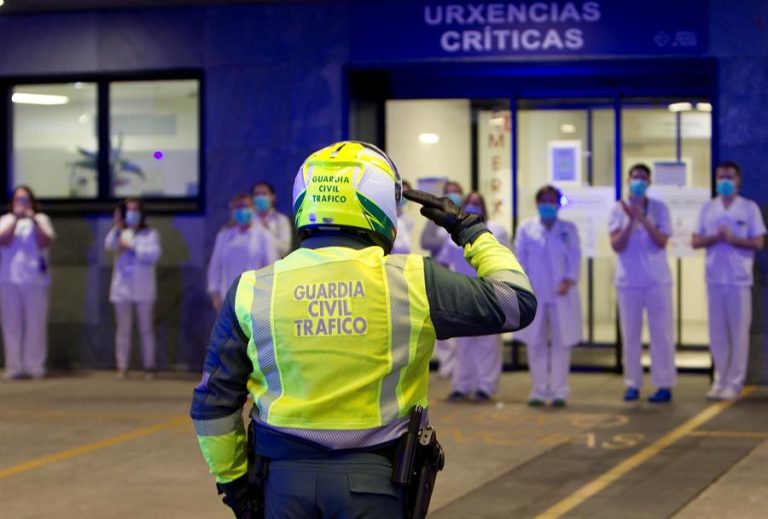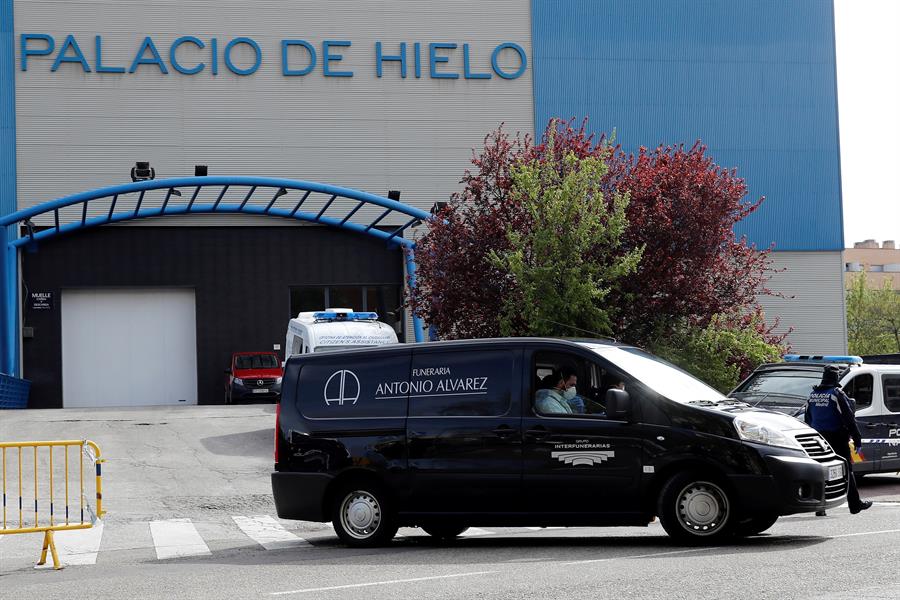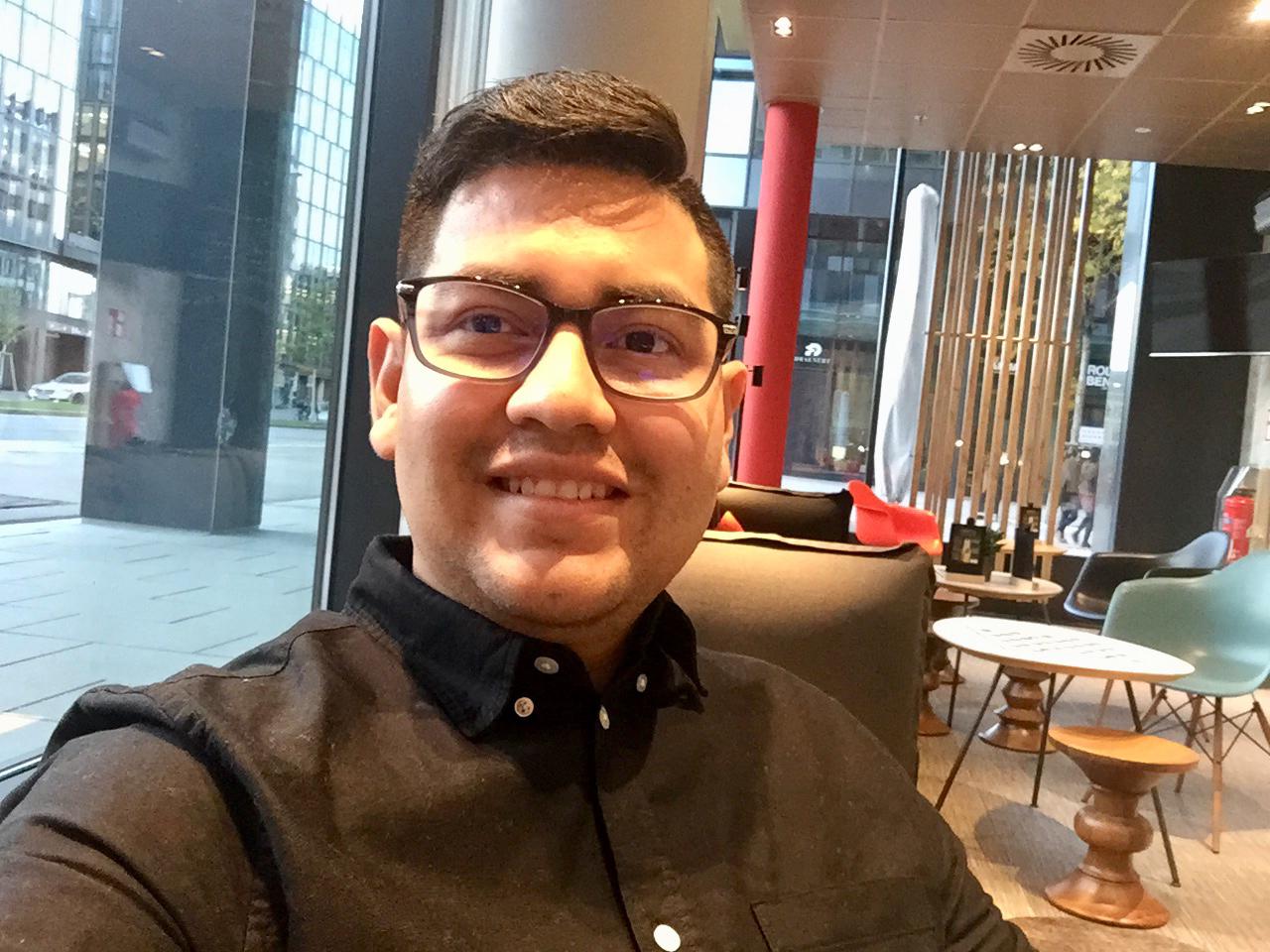28 de marzo 2020

Ortega Grants Chinese Company a Huge Mining Concession

PUBLICIDAD 1M
PUBLICIDAD 4D
PUBLICIDAD 5D
Luis Blandon has spent more than ten days in quarantine in Madrid, one of the most critical areas of contagion. He is worried about economic survival.

The day that Nicaraguan Luis Blandon read in Spanish newspapers that the city of Madrid will use its most famous ice skating rink to preserve the corpses of those killed by the coronavirus, he sat stupefied in his apartment, where he has spent more than ten days under strict quarantine.
This young man arrived in Spain a year and a half ago as a political exile, and just when he had finally managed to establish himself, the worldwide pandemic of covid-19 caused uncertainty about his immediate future, especially his finances.
Spain is a major area of coronavirus contagion: 5,690 people have died and there are 72,248 infected, according to the most recent published statistics. The capital Madrid is the hottest zone of the epidemic, with over 19,000 positive cases and 1825 deaths, according to the Spanish Ministry of Health, Consumption and Social Welfare.
Prime Minister Pedro Sanchez has extended the quarantine and the state of emergency until April 11, a measure that political exile Blandon considers necessary, but that puts his job in jeopardy. He still needs to pay rent and other living expenses.

A hearse leaves the Ice Palace, a shopping mall with a skating rink in Madrid that has been converted into a morgue for victims of coronavirus. Photo: EFE | Chema Moya
“I am very afraid, because they are starting to fire a lot of people, especially in the tourist industry, which is where people work and risk their lives,” Blandon told Confidencial via Skype from Madrid. “The unemployment rate is rising. The government has said that it will give assistance to people with contracts in the next few months. It has just allocated 200 million euros. However, the Nicaraguan community is very vulnerable.”
In 2019, a total of 6851 Nicaraguans applied for political asylum in Spain. Blandon is emphatic that undocumented Nicaraguans in the midst of the covid-19 epidemic are “in a desperate situation.”
“I can’t say what will happen before this is under control, but it might take much longer than anyone expected. In my case, I don’t know how I will pay my rent or living expenses. Nobody believed this illness would spread so quickly, much less that it would get so out of hand,” lamented Blandon.
Covid-19 in Spain: “It is out of control”
Blandon confirmed that Spaniards believe that the government’s preventive measures against the coronavirus came too late. According to him, they were too “trusting” that their advanced healthcare system could contain the pandemic. However, the healthcare system is way over capacity to the point that there is no room in the morgues and bodies must be transferred to the Madrid ice skating rink.
“When you’re in quarantine, you look for things to do, you get bored, you get frustrated, and you feel nervous, because you don’t know if you can catch it when you can finally get out and go shopping. You don’t know who is infected, because it can be asymptomatic. It doesn’t hit you right away, but later it does,” Blandon said. “The healthcare system itself has collapsed in the face of so many thousands of cases. That is a little scary: If you catch it, you don’t know what to do or where to go, because everything has collapsed. It’s out of control.”
However, Blandon said that the Spanish authorities have strengthened measures to contain covid-19, despite the shortage of gel alcohol and gloves. For example, the streets of Madrid are deserted, and only one person per household can leave to go shopping under the watchful eye of the local police.
“It’s not like I can just run out and go shopping if I run out of toothpaste or bleach. That is prohibited. In fact, I am running out of personal items and food in the apartment I share with other people,” Blandon said. “We all get together and make a list so that one person can go buy everything at one time. It is prohibited for two or three to go out, and they can even fine you.”

Nicaraguan Luis Blandon in Madrid, Spain, where he has been living in exile for a year and a half.
Blandon stated that, even though the healthcare system is over capacity, authorities are available to attend to a suspicious or positive case as quickly as possible.
“The Government has been informing everyone of prevention measures. If I contract the coronavirus, I have a hotline number to call. They will come to my apartment and examine me. They will give me the test, and if I have a fever of 40 degrees or higher, they will immediately transfer me to the nearest health center,” said Blandon. “I will receive the same care as any other person, since the government has ordered that the healthcare system treat everyone, whether foreigner or Spanish national,” he said with relief.
Archivado como:
PUBLICIDAD 3M
Periodista. Destaca en cobertura a violaciones de derechos humanos: desplazamiento forzado, tráfico ilegal en territorios indígenas, medio ambiente, conflictos mineros y ejecuciones extrajudiciales. Premio Iberoamericano Rey de España 2018.
PUBLICIDAD 3D